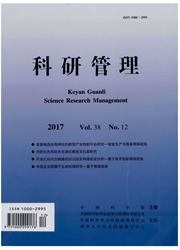

 中文摘要:
中文摘要:
战略联盟是新创企业克服新生弱性、获取组织合法性的重要手段,然而目前有关新创企业合法性获取的联盟战略及其作用机理尚不明晰。借助结构方程模型,我们考察组织学习在战略联盟与新创企业合法性获取关系间的中介作用以及环境动态性的调节作用,结果显示:1)战略联盟显著增强了新创企业的合法性;2)组织学习在战略联盟与新创企业合法性获取的关系间发挥着完全中介作用;3)环境动态性显著调节了新创企业战略联盟对组织学习的影响。具体而言,环境动态性越高,新创企业战略联盟与组织学习的正向关系越强,反之越弱;4)环境动态性还进一步调节了组织学习对新创企业战略联盟与组织合法性的中介作用,表现为被调节的中介效应,即环境动态性越高,战略联盟通过组织学习对新创企业合法性获取所产生的作用就越强,反之越弱。本研究为分析转型经济环境中新创企业合法性获取过程以及验证战略联盟在新创企业发展过程中的作用机制提供了参考。
 英文摘要:
英文摘要:
Strategy alliance is an important means of new ventures to overcome LON and acquire organizational legitimacy. However, we still know little about the relationship between strategy alliance of new ventures and organizational legitimacy. Drawing upon the structural equation model, this paper examines the mediating effect of organizational learning and the moderating effect of environmental dynamism on the relationship between strategy alliance and organizational legitimacy. Our findings contribute to the literature in several ways. First, strategy alliance is able to significantly influence new ventures' legitimacy. Second, the mediating test shows that organizational learning acts as a mediator between strategy alliance and organizational legitimacy. Third, environmental dynamism moderates the relationship between strategy alliance and organizational learning. In addition, hierarchical regression analysis shows that the relationship between strategy alliance and organizational learning becomes stronger as enviromnental dynamism growing from low to high. Fourth, environmental dynamism moderates the mediating effect of organizational learning on the strategy aUiance and organizational legitimacy linkage. Furthermore, conditional indirect effect test shows that the relationship between strategy alliance and organizational learning is more significant when environmental dynamism is higher. To sum up, our findings provide great implications for those future studies on strategy alliance of new ventures and organizational legitimacy in a transitional economy.
 同期刊论文项目
同期刊论文项目
 同项目期刊论文
同项目期刊论文
 Host Country Executives’ Assessments of International Joint Ventures and Divestitures: An Experiment
Host Country Executives’ Assessments of International Joint Ventures and Divestitures: An Experiment 期刊信息
期刊信息
